Our present is struggling.
Our future needs alternatives.
A fair, green and peaceful world is possible but we have to work together to build it. Change is happening – alternatives already exist. We can champion forms of development that put people and the planet before profit.
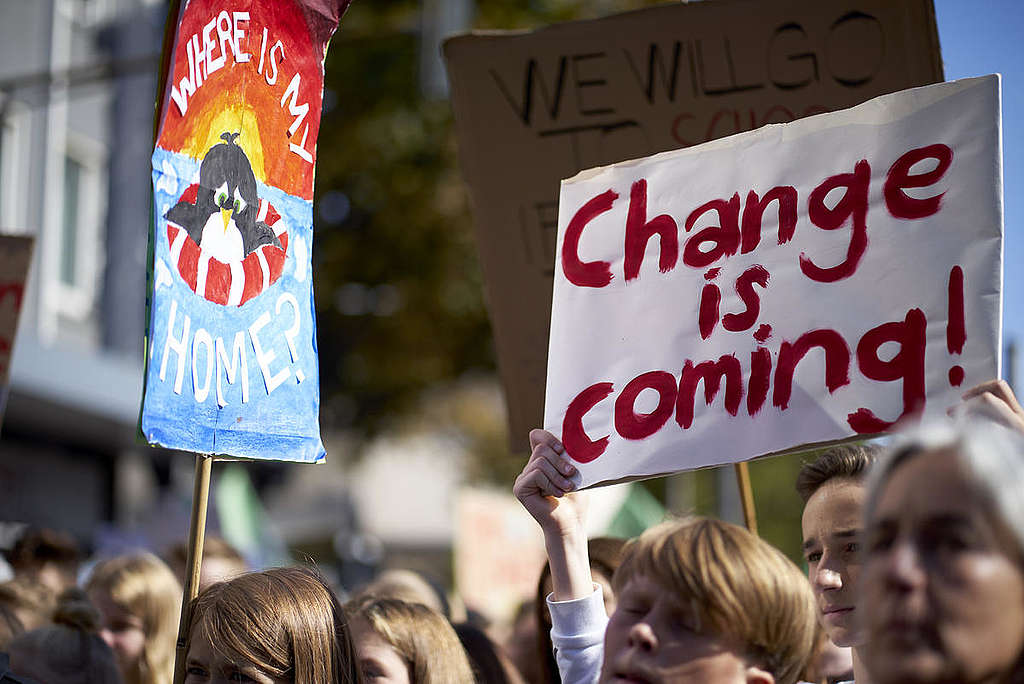
The Problem
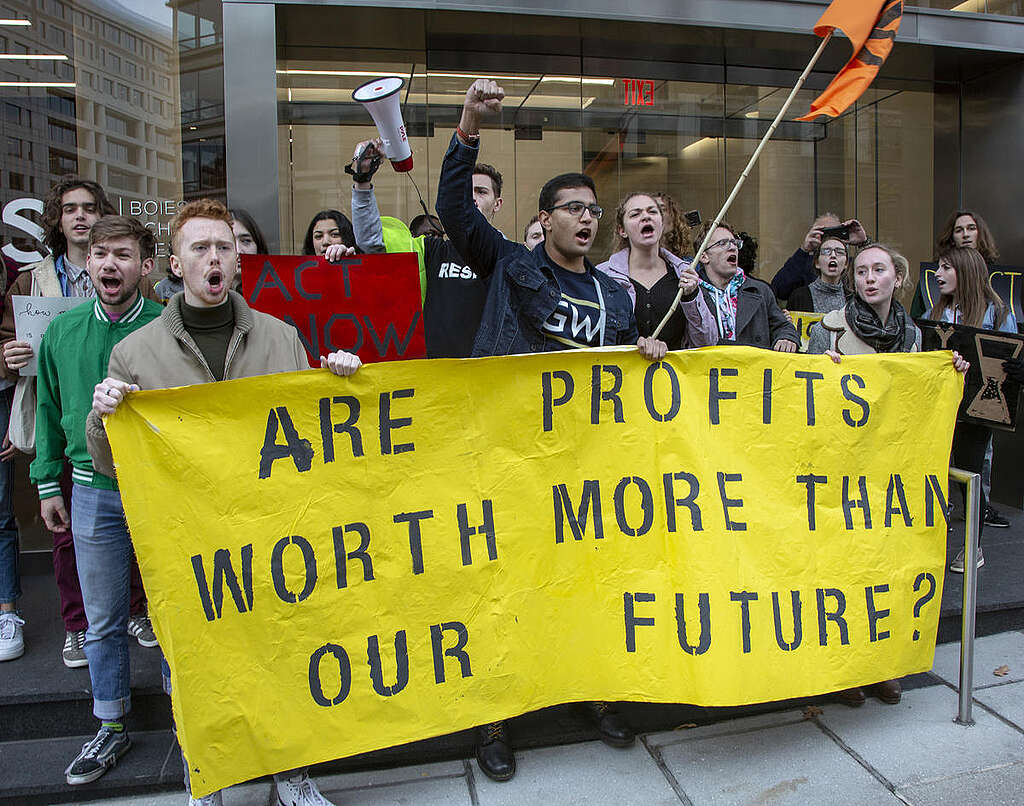
The impacts of the climate crisis are being felt around the world. Extreme weather events, food shortages due to crop failures and forced displacement are causing many communities to struggle for survival.
It is clear that the current economic system we live in does not serve our planet, nor the people that live on it. The never-ending race towards more economic growth, more profits, and more consumption is silencing alternative approaches, creating a crisis of imagination, and ultimately leading us towards collapse. To tackle the climate emergency we must also address the inequalities and injustices created by neocolonialism and capitalism.
What we do
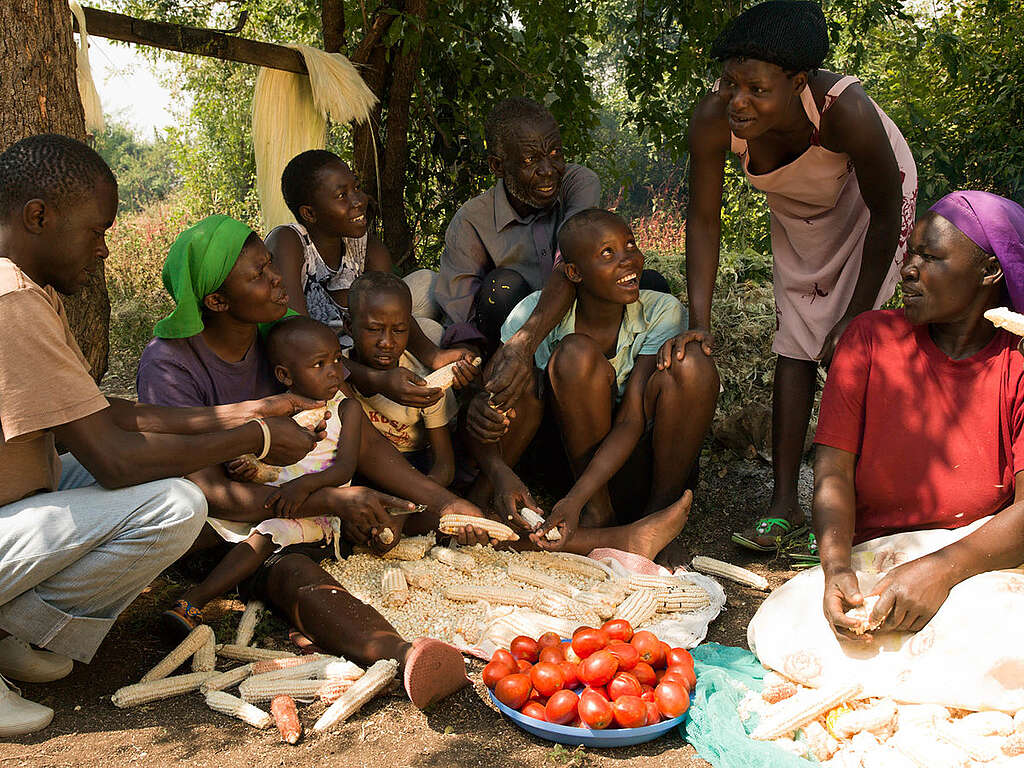
There is a better way for us all to live. Many societies and communities around the world are already creating an alternative future and building the path towards a fairer, greener and more peaceful future.
The Alternative Futures campaign challenges the idea that there is only one economic model that all countries must follow. This campaign aims to amplify conversations and knowledge from communities and individuals around the globe. By sharing experiences and learnings from societies who are already practising and implementing these alternative solutions we can work together to build a vision where people and the planet come before profit and infinite growth.
Theories and stories that sow the seeds of alternative futures
In this document we explore political alternatives and economic scenarios, analyse market responses to these alternatives, and visit examples that exist and work, which set the path for the futures we want to build.
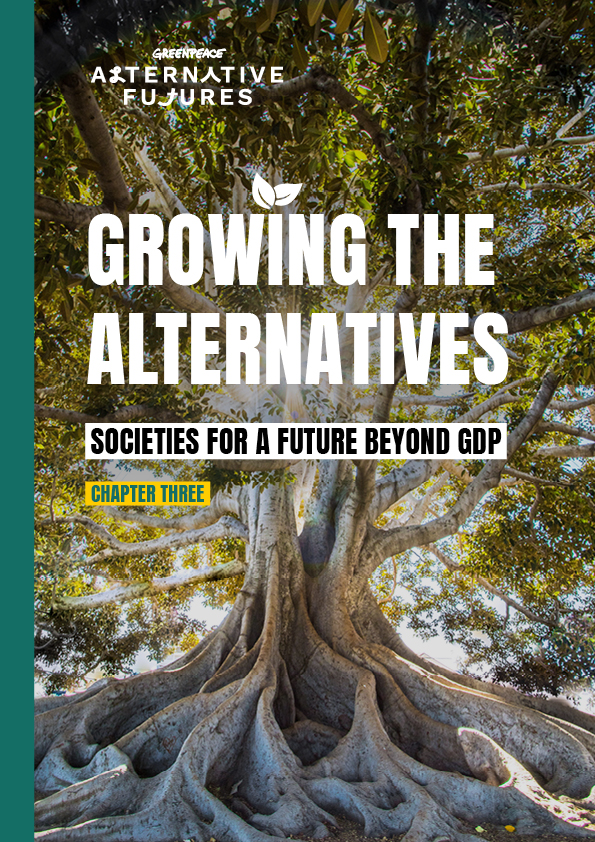
Growing the Alternatives
To reach new places, we need to explore new paths. Only in this way will we achieve different realities, alternative futures shaped by equitable, collaborative societies committed to the environment.
Curious to see existing alternatives? Do you have an example to share?
Join our community committed to sharing and learning. Explore our Global Map of Alternatives, showcasing societies prioritising well-being over profit worldwide. Share your story today and let’s grow the alternatives together!
Be part of the change
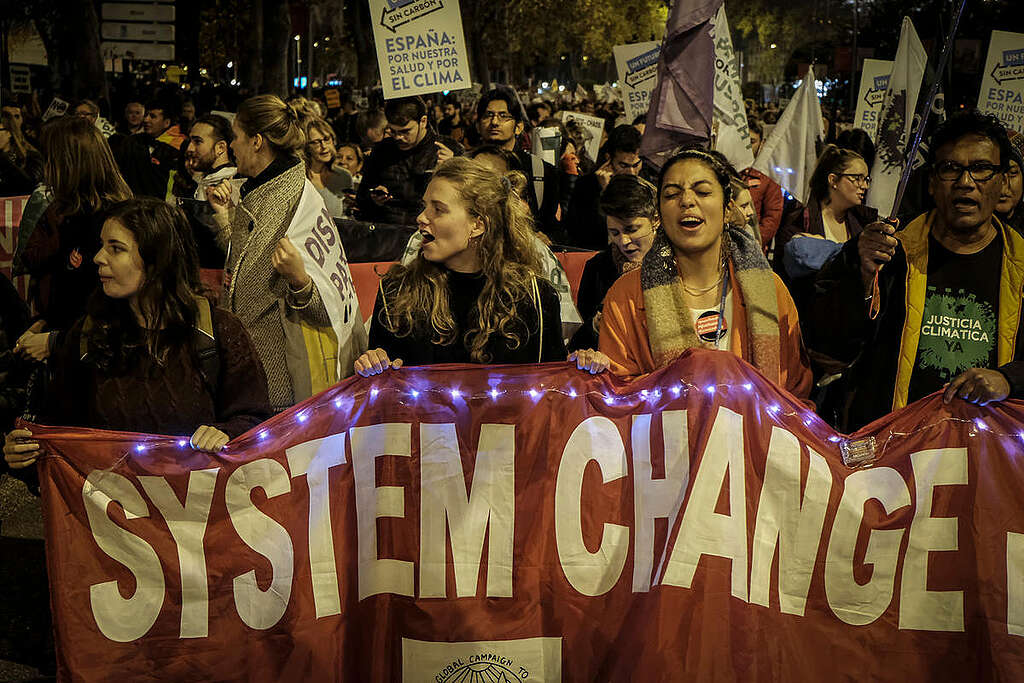
Wellbeing for All
We’re asking governments to put wellbeing at the top of the agenda. We can use our collective power to demand change at the global and national levels that put wellbeing for people and the planet at the core.
Better understand the issues
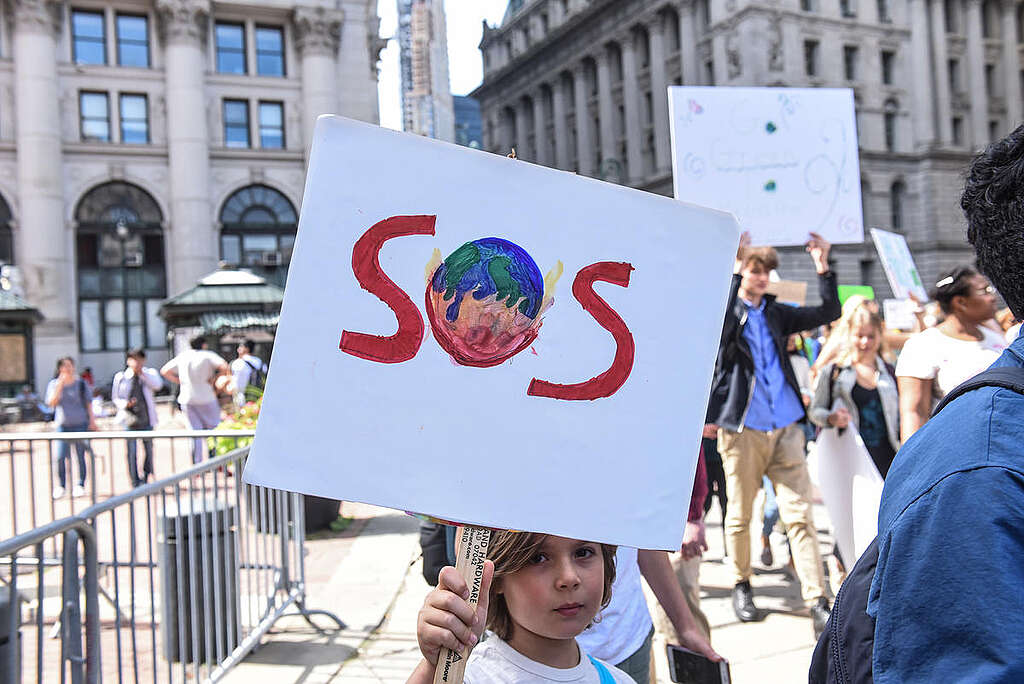
Alternative Socio Economic Models
This living document aims to illustrate the principles of a way of living that were aligned with Greenpeace’s values and global programme, while proposing potential pathways for change that could transform the economy and save jobs, prevent climate change, biodiversity loss, fight inequity and ensure wellbeing.
